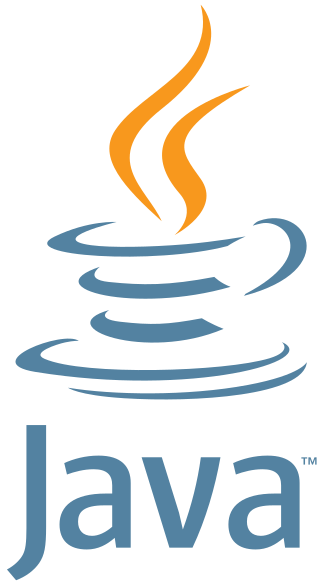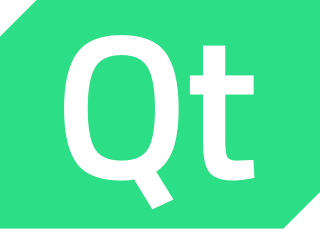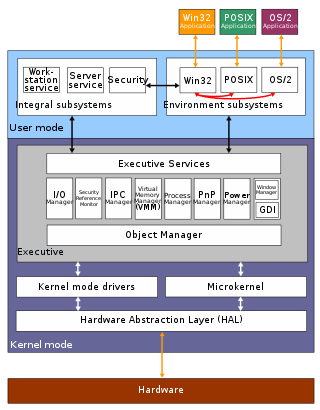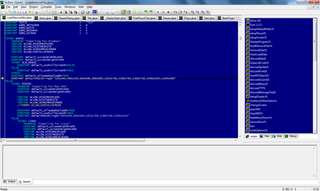A "Hello, World!" program is generally a simple computer program which outputs to the screen a message similar to "Hello, World!" while ignoring any user input. A small piece of code in most general-purpose programming languages, this program is used to illustrate a language's basic syntax. A "Hello, World!" program is often the first written by a student of a new programming language, but such a program can also be used as a sanity check to ensure that the computer software intended to compile or run source code is correctly installed, and that its operator understands how to use it.

Java is a high-level, class-based, object-oriented programming language that is designed to have as few implementation dependencies as possible. It is a general-purpose programming language intended to let programmers write once, run anywhere (WORA), meaning that compiled Java code can run on all platforms that support Java without the need to recompile. Java applications are typically compiled to bytecode that can run on any Java virtual machine (JVM) regardless of the underlying computer architecture. Although its syntax is similar to that of C and C++, the Java language has fewer low-level facilities than either of them. The Java runtime provides dynamic capabilities that are typically not available in traditional compiled languages.

A Linux distribution is an operating system made from a software collection that includes the Linux kernel and often a package management system. They are often obtained from the website of each distribution, which are available for a wide variety of systems ranging from embedded devices and personal computers to servers and powerful supercomputers.

Qt is cross-platform application development framework for creating graphical user interfaces as well as cross-platform applications that run on various software and hardware platforms such as Linux, Windows, macOS, Android or embedded systems with little or no change in the underlying codebase while still being a native application with native capabilities and speed.
In computing, cross-platform software is computer software that is designed to work in several computing platforms. Some cross-platform software requires a separate build for each platform, but some can be directly run on any platform without special preparation, being written in an interpreted language or compiled to portable bytecode for which the interpreters or run-time packages are common or standard components of all supported platforms.

The Windows API, informally WinAPI, is the foundational application programming interface (API) that allows a computer program to access the features of the Microsoft Windows operating system in which the program is running.
Object Pascal is an extension to the programming language Pascal that provides object-oriented programming (OOP) features such as classes and methods.

A LAMP is one of the most common software stacks for the web's most popular applications. Its generic software stack model has largely interchangeable components.
XULRunner is a discontinued, packaged version of the Mozilla platform to enable standalone desktop application development using XUL, developed by Mozilla. It replaced the Gecko Runtime Environment, a stalled project with a similar purpose. The first stable developer preview of XULRunner was released in February 2006, based on the Mozilla 1.8 code base. Mozilla stopped supporting the development of XULrunner in July 2015.

Mathomatic is a free, portable, general-purpose computer algebra system (CAS) that can symbolically solve, simplify, combine and compare algebraic equations, and can perform complex number, modular, and polynomial arithmetic, along with standard arithmetic. It does some symbolic calculus (derivative, extrema, Taylor series, and polynomial integration and Laplace transforms), numerical integration, and handles all elementary algebra except logarithms. Trigonometric functions can be entered and manipulated using complex exponentials, with the GNU m4 preprocessor. Not currently implemented are general functions like f(x), arbitrary-precision and interval arithmetic, and matrices.
Comparison of the Java and .NET platforms.

GLBasic is a commercial BASIC programming language that can compile to various platforms including Windows, Linux, Mac OS X, and some handheld devices. The language is designed to be simple and intuitive.

Symbian is a discontinued mobile operating system (OS) and computing platform designed for smartphones. It was originally developed as a proprietary software OS for personal digital assistants in 1998 by the Symbian Ltd. consortium. Symbian OS is a descendant of Psion's EPOC, and was released exclusively on ARM processors, although an unreleased x86 port existed. Symbian was used by many major mobile phone brands, like Samsung, Motorola, Sony Ericsson, and above all by Nokia. It was also prevalent in Japan by brands including Fujitsu, Sharp and Mitsubishi. As a pioneer that established the smartphone industry, it was the most popular smartphone OS on a worldwide average until the end of 2010, at a time when smartphones were in limited use, when it was overtaken by iOS and Android. It was notably less popular in North America.

Kiwix is a free and open-source offline web browser created by Emmanuel Engelhart and Renaud Gaudin in 2007. It was first launched to allow offline access to Wikipedia, but has since expanded to include other projects from the Wikimedia Foundation, public domain texts from Project Gutenberg, many of the Stack Exchange sites, and many other resources. Available in more than 100 languages, Kiwix has been included in several high-profile projects, from smuggling operations in North Korea to Google Impact Challenge's recipient Bibliothèques Sans Frontières.
Dart is a programming language designed by Lars Bak and Kasper Lund and developed by Google. It can be used to develop web and mobile apps as well as server and desktop applications.

Kivy is a free and open source Python framework for developing mobile apps and other multitouch application software with a natural user interface (NUI). It is distributed under the terms of the MIT License, and can run on Android, iOS, Linux, macOS, and Windows.
InstallCore was an installation and content distribution platform created by ironSource, including a software development kit (SDK) for Windows and Mac OS X. The program allowed those using it for distribution to include monetization by advertisements or charging for installation, and made its installations invisible to the user and its anti-virus software.
Besides the Linux distributions designed for general-purpose use on desktops and servers, distributions may be specialized for different purposes including computer architecture support, embedded systems, stability, security, localization to a specific region or language, targeting of specific user groups, support for real-time applications, or commitment to a given desktop environment. Furthermore, some distributions deliberately include only free software. As of 2015, over four hundred Linux distributions are actively developed, with about a dozen distributions being most popular for general-purpose use.

ROCm is an Advanced Micro Devices (AMD) software stack for graphics processing unit (GPU) programming. ROCm spans several domains: general-purpose computing on graphics processing units (GPGPU), high performance computing (HPC), heterogeneous computing. It offers several programming models: HIP, OpenMP/Message Passing Interface (MPI), and OpenCL.










